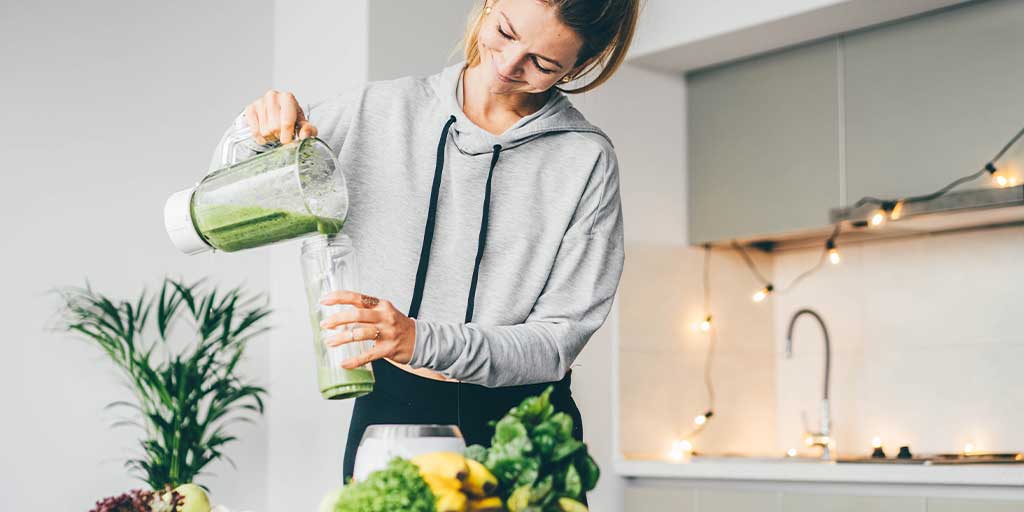2021 is now behind us. The month of January is a good time to set new habits for a healthier lifestyle. In fact, nearly 80%* of French people adopt new resolutions every year. Among the top of the concerns are getting back into sport (44%)*, eating better (36%)*, and getting more sleep (29%)*. However, only 6% of French people say they succeed in keeping their resolution in full. How can you finally manage to keep your resolutions? By setting achievable and realistic goals!
1 – Resuming regular physical activity
Nearly one in two French people make the resolution to get into (or get back to) sport at the beginning of the new year. Indeed, regular physical activity has many benefits, both for the body and mental health. However, it is not always easy to stick to it, especially in the middle of winter when the weather does not always allow you to do outdoors sports. Here are some tips for fitting in regular physical activity over time:
And for all those who are dragging a bit after the holiday season, vitamin and mineral complementation in addition to a healthy and varied diet are an excellent ally to restore your energy and strengthen your body’s natural defences. For quick results, seven-day flash cures are ideal.

2 – Adopt a healthier and balanced diet
For 60% of French people, meals are a time of conviviality and sharing**, which is not surprising in a country where gastronomy is of great importance. While many attach importance to the contents of their plate, the French believe that adopting a diet richer in fruits and vegetables and lower in carbohydrates would help them to better control their weight.
After the end-of-year celebrations, numerous meals, and probably more alcohol than usual, it may be a good idea to do a little slimming detox. The natural extracts of caraway, fennel, meadowsweet, dandelion, birch, or even artichoke are true allies to eliminate toxins. A 15-day detox will rid the body of toxins and excess water accumulated over the past few weeks and jump-start the metabolism.
For those who wish to go even further and eliminate the extra pounds accumulated during the holidays, it may be wise to continue with a slimming programme. Opting for an overall slimming programme that follows the physiological rhythm of the body, is ideal for rapid and effective results. There are three-step slimming programmes:

3 – Improve the quality of your sleep
On average, French people sleep less than seven hours per night, the minimum recommended by health practitioners for proper recovery. What is the reason for this lack of sleep? Many factors, such as a delayed bedtime due to a long time spent in front of screens, getting up earlier and earlier to go to work, or even difficulty falling asleep that may be linked to anxiety, for example. Therefore, many adults constantly feel tired. Even more worrying, a lack of sleep also affects adolescents and even children. Yet, sleep is essential for child development.
After staying up late during the last weeks of the year, it is essential that children, adolescents, and adults resume a sleep regimen for longer and better quality sleep.
Here are the recommended sleep times according to age:
National Sleep Foundation recommendation, 2019
For adults who are not getting the recommended hours of sleep, who have trouble falling asleep, or who wake up at night, it may be wise to turn off all screens at least one hour before bedtime. Relaxing music, a soothing book, or even a short, guided meditation are strongly recommended to help fall asleep and get more restful sleep.
For all parents who find it difficult to put their children to bed at a suitable time, it is recommended to ban all overly active games at least two hours before bedtime. Establishing a bedtime ritual before going to bed also allows the brain to gradually prepare to fall asleep. Finally, there are natural solutions to improve the quality of children’s sleep and help them fall asleep. Lavender, Marjoram, Hawthorn, and Chamomile extracts are particularly well recognised for their effects on sleep.

*Survey carried out between 4 and 10 December 2020 on 10,602 people representative of the French national population according to the quota method.
**“The attitudes and food trends of the French”, Survey conducted online by Ipsos for INTERBEV from 18 to 22 January 2019 on a sample of 1,066 people, representative of the French population aged 18 and over, according to the quota method.




